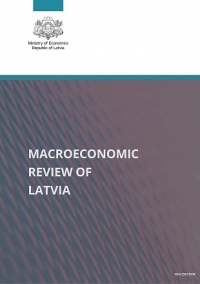In 2024, despite stabilized inflation, the economic situation remained stagnant due to an unfavourable external environment. GDP contracted by 0.4%. Private and government consumption increased, but Latvia’s foreign trade flows and investment activity slowed.
The Ministry of Economics forecasts that economic activity will begin to recover in 2025. Growth will be supported by an improving global economic environment, which is expected to revive export activity. Lower interest rates in the eurozone, including Latvia, will also help boost consumption, the real estate market, and construction. Additionally, increased investment from EU funds and reforms aimed at enhancing competitiveness – including reduced labour taxes – will have a significant positive impact on Latvia’s economy. However, risks remain, particularly those related to the geopolitical situation and potential increases in U.S. import tariffs.
The medium-term economic outlook depends heavily on external conditions and the implementation of reforms. The most significant risks to Latvia’s growth relate to global economic developments – particularly the geopolitical landscape. Continued progress within the EU’s common economic space will also be important. Latvia’s medium-term economic strengths will lie in its macroeconomic stability, which has led to improved credit ratings, the effective use of EU support programs, and improvements to the business environment. However, if the war in Ukraine continues, the pace of economic recovery may remain subdued.
Latvia’s competitive advantages are increasingly rooted in technological development, improved production efficiency, and innovation, rather than in low labor costs or cheap resources. Under favorable conditions, Latvia’s medium-term growth potential could reach 4-5% per year.
Previous reviews and other publications on economic development can be found here ...



